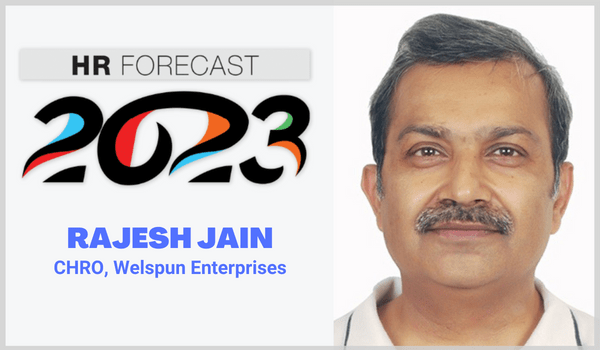2022 was a volatile year for HR & workforce
In the market, events ranging from the Great Resignation to massive layoffs are a matter of demand and supply of talent. Because of our actual growth rate, India has been in a phase of higher- than-usual voluntary resignations for some time, which we term ‘The Great Resignation’. COVID-19 was a game changer in some impacted industries, such as hospitality and education, where jobs dried up, people faced deep salary cuts, and even layoffs during FY 21. Such trends reversed as soon as the COVID restrictions were relaxed; the market sentiments’ swing was dramatic. Some companies started hoarding talent in the middle of 2022, and the demand surged so much that the ‘Great Resignation’ peaked again. The bubble of sentiments-based artificial talent demand burst soon when businesses failed to grow as expected, resulting in ‘massive layoffs’ in the latter part of 2022. During the Great Resignation, the most cited reasons for resigning included inflation, rising cost of living, lack of career growth, hostile work environments, lack of benefits, inflexible remote-work policies, and long-lasting job dissatisfaction. The mother of all reasons,
however, remains the swing between the ‘demand and supply of talent.’
2023: Will it be a turmoil again or peace?
Expecting peace in this age is like asking for the moon. We are witnessing businesses becoming more and more complex due to rising customer expectations. The required skill sets are changing faster than the seasons. Technology is advancing in leaps and bounds. Inflation is increasing in large parts of the world. Countries are
renewing their border disputes. Wars are happening in the age of ‘no wars’. Regional divide is rising. Humanity, in general, is becoming more impatient. Hence, business sustainability and risk profiles will change further causing more uncertainty and creating new opportunities at the same time. The key focus areas will remain securing
the right talent, the ability to scale upskill development to become ‘aatmanirbhar’, keeping ears to the ground to listen to and understand the vibes for faster corrective actions, innovative models for attracting talent, increased ease of hiring and working through flexible policies around gig workers, moon-lighting, and so on.
More specialists or generalists
Companies will hire generalists and avail the services of specialists as consultants. In the future, we will need fungible talent to manage the business, and the specialists will flirt with many companies.
To get to the leading role, an HR person has to become a business person, and the business person has to become an HR person
Technology or new world of work reshaping people managers?
The role of a people manager is to manage people. The part will never change. We may get additional management tools through technology, but the changes in the work environment will make us use our ‘situational leadership’ skills more skilfully. It is sad that as the HR processes and systems become more prominent, the managers leave their core job of people management to the tools and HRBPs. People-management skills and capabilities are any organisation’s most critical success factor.
Importance of employee talent bringing HR closer to the top role
Since humanity came into existence, talent and people have been and will remain the deciding factor. Nothing has changed. As long as one remains a specialist HR person or a specialist of any other function, there is no chance of achieving the top role. To get to the leading role, an HR person has to become a business person, and the business person has to become an HR person. Only a complete ‘whole’ will get to the top, not a piece of it.
33 leaders predict the upcoming trends for 2023. To find out more click here.



